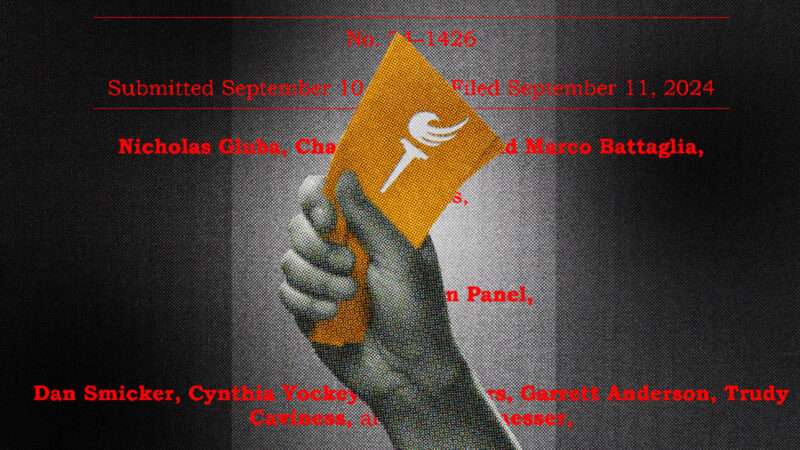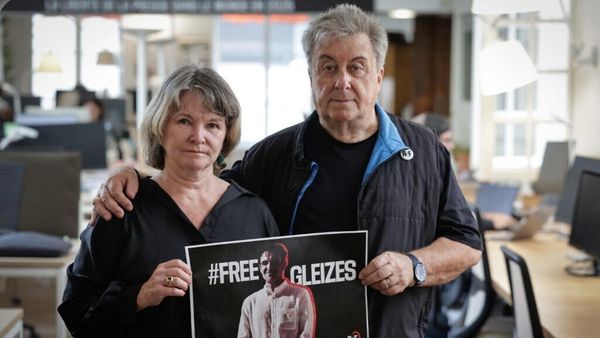
The Iowa Supreme Court this week upheld a decision made by a State Objections Panel last month that barred three Libertarian federal congressional candidates from the ballot in November. The long litigious process began in January when the Libertarian Party of Iowa (LPIA) held its precinct caucuses and county conventions on the same day.
According to Iowa law, delegates are elected at these precinct caucuses and then participate in county conventions which select delegates for the state convention. That process resulted in the nominations of Nicholas Gluba, Marco Battaglia, and Charles Aldrich for Iowa's 1st, 3rd, and 4th congressional districts, respectively, during the LPIA's state convention held in June.
Months later, Republicans from the districts with Libertarian opponents challenged the process, initially alleging that the Libertarians had skipped county conventions and moved directly from precinct caucuses to the state convention, in violation of Iowa law. This led to a State Objections Panel hearing late last month to determine if the LPIA had held proper county conventions.
According to the appellate brief, a day before the hearing the objection shifted from whether the LPIA had a county convention at all to whether they adhered to the legal requirement to hold precinct caucuses and county conventions on different days. This undermined the evidence the LPIA had prepared addressing that earlier, distinct question.
By Iowa law, delegates do not officially start their terms until the day after they are elected, so the LPIA delegates who selected the delegates for the state convention weren't legally delegates yet. Had the LPIA delayed their conventions by just 181 minutes, they would have met the legal requirements.
The State Objections Panel, voting 2–1, disqualified the Libertarian candidates. (The two voting against the Libertarians were the two Republicans on the panel.) An appeal was filed two days later, and a temporary injunction was granted the following week, just before Iowa's secretary of state planned to certify the ballots. The appeals judge upheld the disqualification, leaving the Iowa Supreme Court as the final chance Libertarians had to appear on the ballot.
During the oral arguments held the day before the decision, the Iowa Supreme Court heard a passionate defense from the Libertarians, who argued that disqualifying their candidates violated the fundamental right to vote. Jennifer H. De Kock, one of the attorneys representing the LPIA candidates, emphasized that Alan Ostergren, the lawyer representing the objectors, had contacted county auditors with procedural questions as early as June 5. Since June 14 was the deadline for holding a county convention, De Kock says Ostergren could have raised his objections then, which would have allowed the Libertarians to address the issues. "But he did not," she said. "He chose to hold his powder, and so that's why this is obstructionism and voter suppression."
Ostergren countered that every Iowan still had the opportunity to vote for the Libertarians as write-ins on November 5. "This is about how you as a candidate have access to the general election ballot," Ostergren said.
De Kock also questioned the standing of the Republicans who objected, suggesting they could not prove that any Libertarians in the affected districts objected to the process. "There's no injury, there's no threat to Iowa election law," De Kock told the Court.
Justice Edward M. Mansfield, however, insisted that the perceived injury for the Republican objectors could be the potential electoral disadvantage they faced if Libertarians remained on the ballot. "They view having the [Libertarian] candidates on the ballots as potentially an injury to the candidates that they've nominated, and so it is an injury," Mansfield said.
This represented an open admission that the Republicans' raw desire to not have opponents on the ballot was being treated as a valid injury worthy of court action. Many of the Libertarians and Iowa State Auditor Rob Sand (who was the sole Democrat objector on the State Objections Panel) insisted that quashing opponents—and not any high-minded obsession with proper delegate selection policies—was why the complaint was launched in the first place, and this seemed to ratify their cynical view.
LPIA would-be congressional candidate Battaglia said in a statement sent to Reason that the removal of him and his fellow Libertarians was an example of "Iowa GOP practicing lawfare in an attempt to keep competition off of the ballot." Sand, in a press conference following the original State Objections Panel decisions, called the candidates' original disqualification "a wrong-headed plot by Iowa's uniparty to limit voters' choices."
Jules Cutler, the chair of the LPIA and a lawyer representing the candidates, spelled out in an email the political motivation behind disqualifying the Libertarian candidates. "For instance, Mr. Gluba's opponent, a currently elected Congresswoman [Mariannette] Miller-Meeks, won by only 6 votes last time."
The post Iowa's Supreme Court Keeps Libertarian Congressional Candidates Off the Ballot appeared first on Reason.com.







